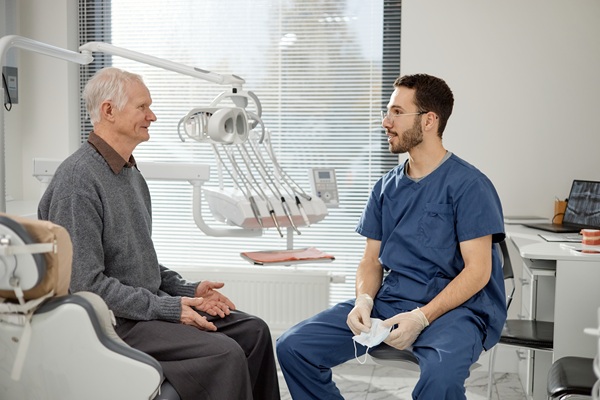Risks Associated With In-Office Teeth Whitening

In-office teeth whitening is a procedure that is safe for most patients with healthy teeth enamel. However, there are some risks that are involved for some patients. Understanding how safe in-office teeth whitening is and what the potential risks are help with deciding about treatment.
The risks of in-office teeth whitening
Anyone who is looking for a way to brighten their smile and remove mild to moderate stains or discoloration should consider in-office teeth whitening. The following is a complete review of what in-office teeth whitening is, what the risks are and what to expect throughout the treatment process.
In-office teeth whitening defined
In-office teeth whitening is a common cosmetic dental procedure that involves applying a bleaching agent to teeth to remove discoloration and teeth stains. In-office teeth whitening is available to most patients who have a healthy smile and want to improve the appearance of their smile, although patients with cavities or weakened enamel may need oral health treatment before the in-office procedure. It is a safe procedure that is typically performed by either the dentist or dental hygienist and only requires one dental visit in most instances.
Potential discomfort with in-office teeth whitening
Most general dentists ensure the patient is in good enough oral health before teeth whitening. If the patient has cavities on visible teeth or is at greater risk of cavities, the dentist may recommend treating them before starting teeth whitening. Therefore, in most instances, there is little to no discomfort during in-office teeth whitening. However, some patients do experience minor teeth sensitivity following treatment. Gum discomfort may also occur if the gums are exposed to the bleaching agent during the in-office procedure.
What to expect after in-office teeth whitening
As mentioned, there may be some minor teeth sensitivity and gum irritation after treatment, although this should be tolerable and go away within 48 hours. To decrease the risk of teeth sensitivity, eat foods that help teeth enamel such as dairy products and other foods that are high in calcium, avoid hard or chewy foods that get stuck on and in between teeth and drink water throughout the day. The results of in-office teeth whitening should last for more than six months with proper care, and many patients are happy with the brightness of their smile for over a year after the procedure.
How often is in-office teeth whitening recommended?
Anyone who is insecure with their smile or feels they would be more confident if they had a brighter and whiter smile should consider in-office teeth whitening. Dentists typically recommend in-office teeth whitening once every year (or less often in some instances).
Talk to an experienced dentist about treatment
Our experienced dental team is glad to help you with all of your cosmetic dental needs. If you are interested in in-office teeth whitening, then call us today to start the treatment process. We take pride in helping our patients achieve a smile they love and are proud to show off when they are around others.
Are you considering teeth whitening in the Aurora area? Get more information at https://www.grandviewdentalcolorado.com.
Check out what others are saying about our dental services on Yelp: Teeth Whitening in Aurora, CO.
Recent Posts
A preventive dentist focuses on stopping problems before they start. By pairing routine checkups with good daily habits, patients protect enamel, gums, and long-term oral function. Seeing a preventive dentist helps catch early signs of decay or gum inflammation, guide at-home care, and plan simple treatments that preserve natural tooth structure. Preventive care also supports…
A deep teeth cleaning is a specialized dental procedure that addresses plaque and tartar buildup below the gumline, often becoming necessary when gums show signs of inflammation or infection. This thorough approach extends beyond the scope of regular cleaning to prevent or slow the progression of periodontal disease. Recognizing the indicators that point to a…
Dental veneers are among the most popular cosmetic treatments in modern dentistry. However, there are several misconceptions about their purpose, durability, and required maintenance. If you are considering dental veneers to improve your smile, it can be helpful to understand the myths and facts about this cosmetic treatment.A common misconception is that dental veneers always…
A new dental filling can help restore the function and integrity of a damaged tooth. However, it is important to be mindful of aftercare practices to ensure their longevity and prevent potential complications. Avoiding certain habits and foods immediately after a dentist places a filling can protect it and the tooth. Here is what you…


